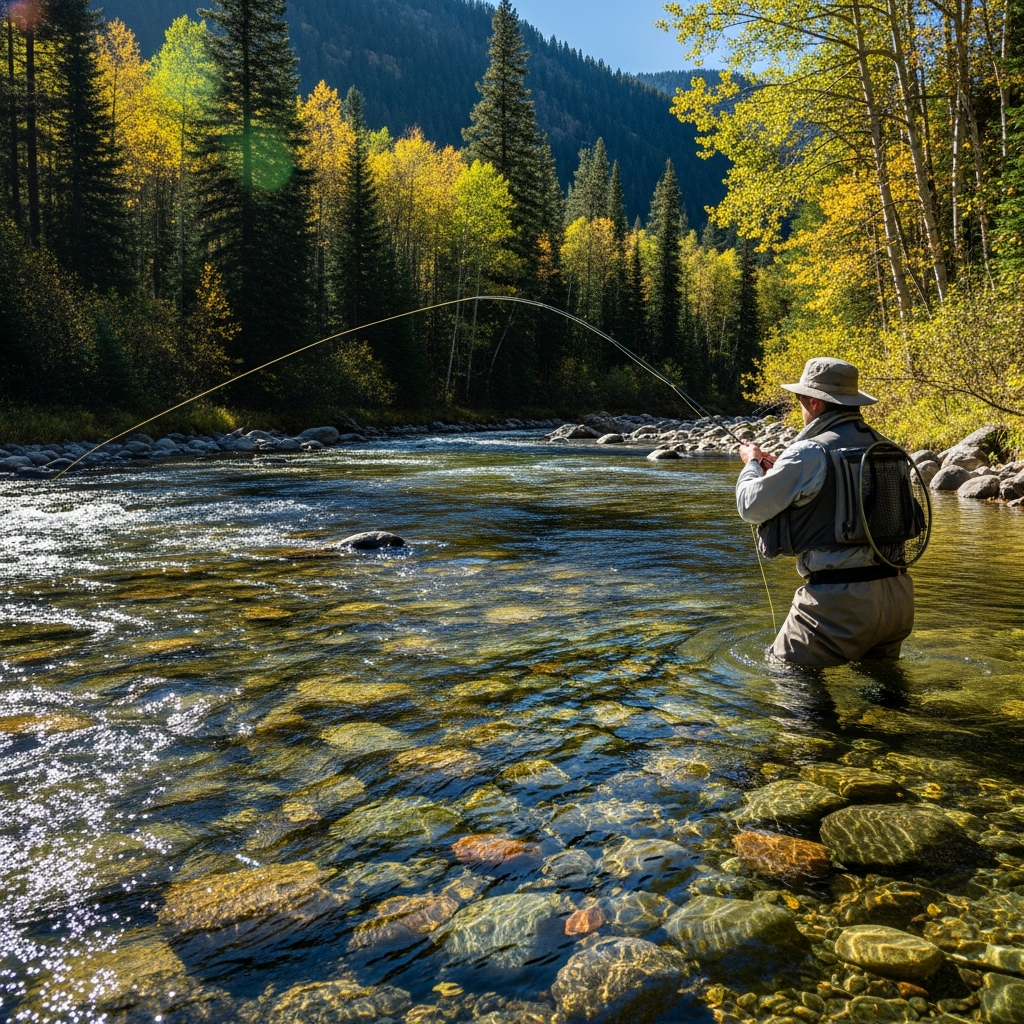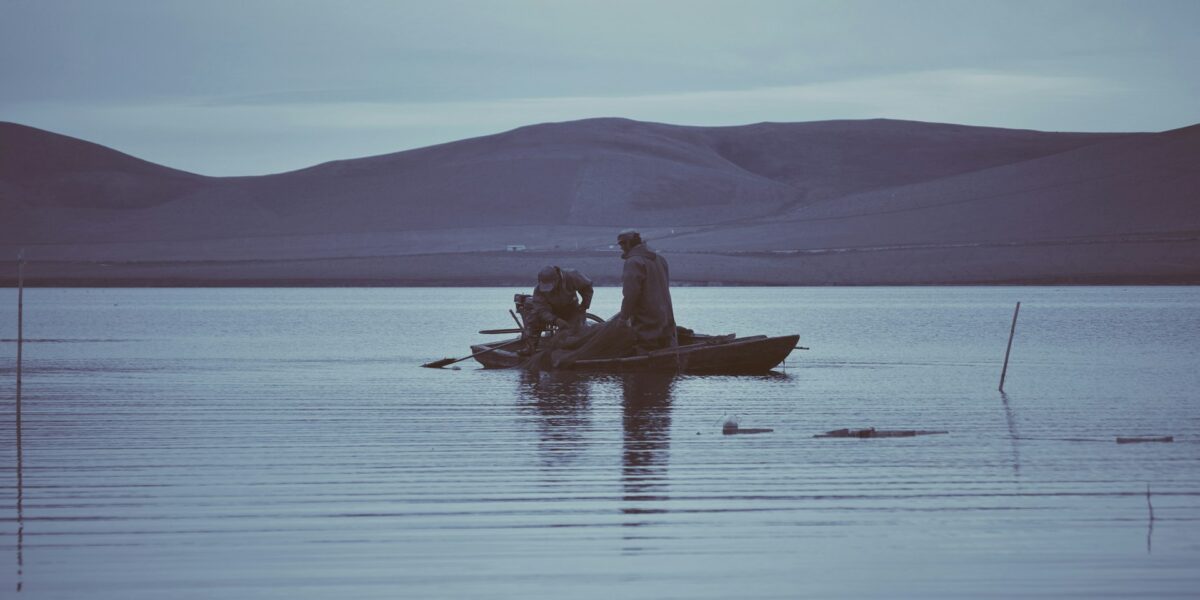Fishing Partner
Fishing Partner: Why Sharing the Water Makes Everything Better
Finding the right fishing partner has gotten complicated with all the solo-adventure content and “go-it-alone” advice flying around online. As someone who’s fished both alone and with partners for most of my adult life, I learned everything there is to know about how a good fishing buddy transforms the experience. Today, I’ll share why I think every angler needs one.

Don’t get me wrong — solo fishing has its place. Sometimes you just need silence and water. But a fishing partner brings something you can’t replicate alone: a second perspective, shared labor, and someone to laugh with when everything goes sideways. Let me walk you through all the reasons why.
The Rhythm of a Good Team
Partners develop a rhythm over time. My buddy Dave and I have it down to a science at this point. I rig the rods while he gets the bait situation sorted. By the time I’ve got lines ready, he’s already scoped out the best spots. More lines in the water means more chances at fish, and splitting the setup work means we’re actually fishing sooner. This division of labor just happens naturally once you fish together enough times. Nobody assigns tasks — you just fall into roles that play to your strengths.
Two Brains Beat One
This is huge. Every angler has blind spots — techniques they’ve never tried, water they’ve never fished, species they don’t understand. A partner fills those gaps. Dave knows every bass spot within fifty miles of our hometown. I’m better at reading current and picking apart structure in new water. Together, we cover ground neither of us could manage alone.
The conversations we have about strategy, about what’s working and what isn’t, have made me a measurably better angler. Discussing approaches before, during, and after each outing builds a shared knowledge base that compounds over years. I’ve adopted techniques from Dave that I never would have discovered on my own, and he says the same about tips I’ve shared with him.
Safety Isn’t Optional
Probably should have led with this section, honestly. Fishing can be dangerous. I’ve slipped on wet rocks, dealt with sudden storms, and had equipment malfunctions at the worst possible times. Having someone there who can throw you a rope, call for help, or drive you to urgent care isn’t just nice — it’s potentially lifesaving.
I wade fish some pretty gnarly water, and I won’t do certain stretches alone. Period. Weather changes fast. Equipment breaks. Health issues can pop up without warning. A partner adds a layer of security that lets you focus on fishing instead of constantly calculating risk. Even just having someone who knows where you are and when to expect you back provides peace of mind that makes the whole experience more relaxing.
Splitting the Bill
Let’s be real: fishing isn’t cheap. Boat rentals, gas, bait, permits, ice, food — it adds up fast. Split those costs with a partner and suddenly that charter trip becomes affordable. That extra gas to reach the far end of the lake doesn’t sting as much. Dave and I go halves on everything, and it means we can afford better bait, more trips, and the occasional guide day that neither of us would spring for alone.
This also opens up possibilities for better gear. We’ve jointly purchased a trolling motor, shared the cost of a fish finder, and split annual boat maintenance. Neither of us could justify these expenses alone, but together they’re totally reasonable. The financial partnership makes the fishing partnership more productive and more enjoyable.
Keeping Spirits High
Everybody’s had those days. You drive two hours, launch the boat, and fish for eight hours without a single decent bite. Doing that alone is genuinely demoralizing. But with a partner? It’s just a bad fishing day with a good friend. You commiserate, crack jokes, blame the weather, and plan the next trip.
That’s what makes a fishing partnership endearing to us die-hard anglers — the shared highs and shared lows. When someone finally catches one after hours of nothing, you’re both fired up. Celebrating a trophy fish together is infinitely more satisfying than high-fiving yourself. And shouldering the disappointment of a tough day is way easier with someone who gets it.
Different Techniques, Better Results
I’m a soft plastics guy. Dave throws crankbaits like they owe him money. On any given day, one approach works better than the other. Having both techniques in play means we figure out the pattern faster. When Dave’s crankbaits start producing, I can adjust. When my jig bite is on fire, he’ll switch over.
This adaptability is worth more than any single lure in the tackle box. We’ve had days where my approach was dead wrong for the first three hours, but Dave dialed in the pattern early. Without him, I would’ve struggled all day. With him, I was catching fish by mid-morning because he showed me what was working. A diverse approach doubles your ability to experiment and adapt to changing conditions.
The Gear Advantage
Between us, Dave and I have an absurd amount of gear. He’s got the kayak, I’ve got the canoe. He carries the net, I bring the measuring board. He has a tackle box dedicated entirely to topwater, while mine is loaded with soft plastics and jigs. Splitting the load means neither of us is overloaded, and we always have what we need.
Forgot your pliers? Your partner’s got a pair. Broke a rod tip? There’s a backup in the truck. Need a different lure color that you didn’t bring? Check your partner’s box. This gear redundancy means you’re never stuck with a problem that can’t be solved on the spot. Setup and teardown go faster too, which means more actual fishing time.
Covering More Water
Two anglers can work a stretch of river or shoreline in half the time. I’ll fish upstream while Dave works downstream. We compare notes by text and converge on whoever’s finding fish. This approach has saved us from getting skunked more times than I can count. It’s basically scouting and fishing simultaneously.
Communication is key here. Sharing what you’re seeing — water clarity, temperature, baitfish activity, what the fish are hitting — helps both partners make smarter decisions. We’ve developed a shorthand for our observations that makes this exchange quick and efficient. Finding the hotspot becomes a collaborative effort rather than a solo guessing game.
Learning Never Stops
Every trip with a partner is a learning opportunity. Watching how Dave approaches a piece of structure I’d walk past has opened my eyes to water I was leaving on the table. Discussing each trip afterward — what worked, what didn’t, why the fish were where they were — reveals patterns that would take solo anglers much longer to identify.
This continuous feedback loop accelerates improvement for both partners. You don’t have to figure everything out alone. Constructive observations from someone who was right there watching make a bigger impact than reading tips on the internet. Over years of fishing together, both anglers become significantly more skilled than either would be on their own.
Maintaining Focus
Fishing requires concentration, especially during slow periods. It’s easy to zone out and miss subtle bites when you’ve been staring at a bobber for two hours. A partner helps you stay sharp. Taking turns monitoring rods means nobody’s attention fades completely. A quick “hey, I think you had a bite” from your partner can mean the difference between catching and missing.
Partners also help maintain vigilance during extended sessions. Long waits are less tedious when you can rotate between actively fishing and taking a break. This reduces fatigue and keeps both anglers ready when the action picks up.
Encouragement When It Counts
It’s easy to get discouraged during slow days or after losing a big fish. Having a partner provides encouragement when you need it most. They can push you to try new spots or switch techniques when you’re ready to give up. A mutual drive to succeed fosters a positive attitude that keeps the energy high even when the fishing is tough.
I’ve had days where I was ready to reel in and head home, but Dave talked me into making a few more casts. Some of those casts produced the best fish of the trip. Persistence is easier when someone else believes you’re about to get bit.
Adapting to Conditions Together
Weather and water conditions can flip on you mid-trip. Wind picks up, clouds roll in, water temperature drops — suddenly everything you were doing stops working. A partner offers a second perspective on adapting strategies. Two minds brainstorming solutions in real-time produces better ideas faster than one person trying to figure it out alone.
Together, you can implement changes quickly. One person adjusts the approach while the other continues with the existing pattern as a control. This systematic adaptation helps overcome challenges and keeps the trip productive regardless of what conditions throw at you.
Problem Solving Under Pressure
Fishing involves constant problem-solving. Tangled lines, stuck anchors, motor issues, figuring out where the fish went after they moved from their morning spots. Two minds are genuinely better than one when you’re trying to untangle a bird’s nest in your baitcaster or figure out why your trolling motor just died.
A partner can suggest solutions from a different angle. They might notice something you’ve overlooked or remember a fix they learned from a previous situation. Resolving issues quickly keeps the focus on fishing rather than frustration.
Scouting New Locations
Trying new fishing spots can be daunting alone. You don’t know the water, the access points, or what to expect. A partner provides confidence and support during these explorations. Together, you can evaluate new locations more effectively — one person can fish while the other scouts ahead. Sharing the excitement of discovering new fishing grounds adds adventure to the whole experience.
Building Real Friendships
Spending hours on the water together builds bonds that extend far beyond fishing. Shared experiences — the disasters, the triumphs, the long drives, the terrible weather, the perfect sunsets — create stories you’ll retell for decades. My friendship with Dave started at a boat ramp fifteen years ago. We struck up a conversation about what was biting and ended up fishing together that afternoon. We’ve been partners ever since, and that relationship has grown into one of the most important friendships in my life.
Accountability and Growth
A good partner keeps you accountable. They ensure you follow through with plans — that dawn departure you committed to, that new technique you said you’d practice, the conservation ethic you both agreed to uphold. Partners motivate each other to keep pushing, keep learning, and keep showing up even when the couch sounds better than the boat ramp.
Bridging Generations
Fishing partners can be of different ages, and that’s a feature, not a bug. I’ve learned invaluable lessons from anglers twenty years my senior, and I’ve passed along knowledge to younger friends just getting started. These cross-generational connections carry fishing traditions forward and bring fresh perspectives to established practices. A young angler’s enthusiasm combined with an older angler’s experience creates a partnership that benefits both.
Creating a Legacy
The stories and experiences shared with a fishing partner create something lasting. They get passed down to kids and grandkids, inspiring new generations to pick up a rod and find their own fishing partners. Every time Dave’s son asks us to tell the story of “the big one that didn’t get away,” I’m reminded that what we’re doing out there matters beyond the moment. It’s building a fishing legacy, one trip at a time.
Shared Meals and Traditions
There’s something special about cooking and sharing a meal after a fishing trip. Whether it’s cleaning the catch and firing up a grill or just grabbing burgers on the drive home, that shared meal celebrates the day and strengthens the bond between partners. Over time, these rituals become traditions — the specific diner you always stop at, the recipe you always use for walleye, the beer brand that’s become “the fishing beer.” These small traditions add up to something meaningful.
Finding Your Person
Not every angler makes a good fishing partner. Compatibility matters more than you’d think. You want someone who shares your pace, your ethics, and at least some of your fishing preferences. Join a local fishing club, hang out at bait shops, or post on regional fishing forums. The right partner is out there.
Fishing alone is peaceful. Fishing with the right partner is something else entirely. It’s richer, more productive, more fun, and more memorable. Find your person, hit the water together, and I promise you won’t regret it. The experiences you build together will outlast any single fish you’ll ever catch.



